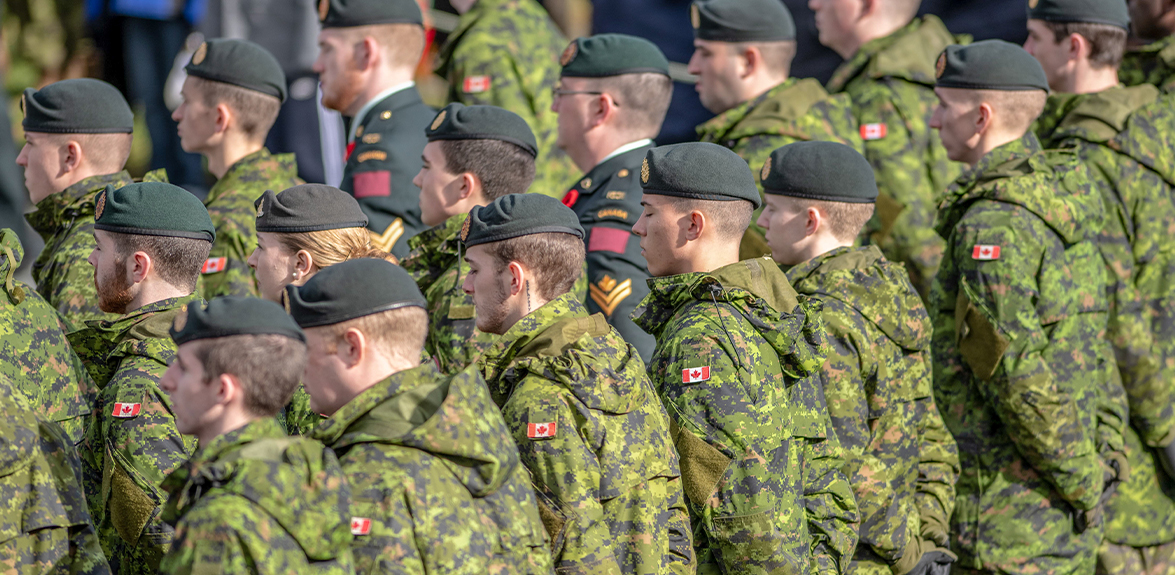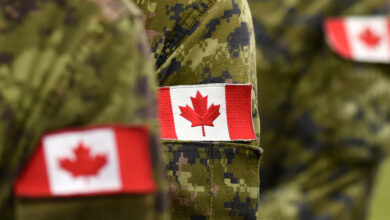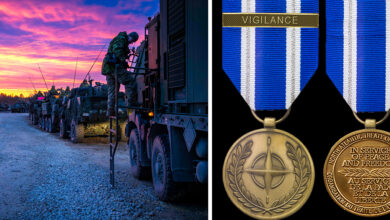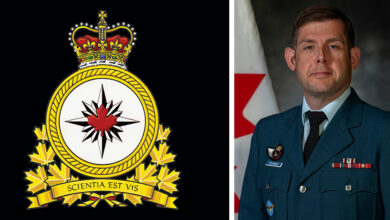Policy
CAF Repeals Regulations on Duty to Report
Above image: St. John’s, Newfoundland/Canada-November 2018: A group of military personnel stand on parade during a Remembrance Day Ceremony Shutterstock.
Adhering to recommendations made by former Supreme Court Justice Louise Arbour, the Canadian Armed Forces (CAF) and Department of National Defence (DND) have made the decision to repeal the regulations on Duty to Report.
Previously, the Duty to Report would require CAF members to report misconduct and were faced with penalties for failing to report something they experienced or witnessed. According to DND, the Duty to Report had the unintended negative effect of “taking away their agency and control in the reporting process” of survivors and victims.
Arbour noted in her report that “experience has shown that the duty to report has not achieved its intended purpose and, worse, has served only to terrorize and re-victimize those it was meant to protect.
The repeal will come into force this winter.
“Fostering a safe and respectful workplace for all Canadian Armed Forces members is my utmost priority. Today’s announcement further demonstrates our commitment to making meaningful and transformative change. We are listening to external experts and stakeholders, and most importantly, CAF members, to develop real solutions that address systemic challenges and will help build a more diverse and inclusive workplace,” said Bill Blair, Minister of National Defence.
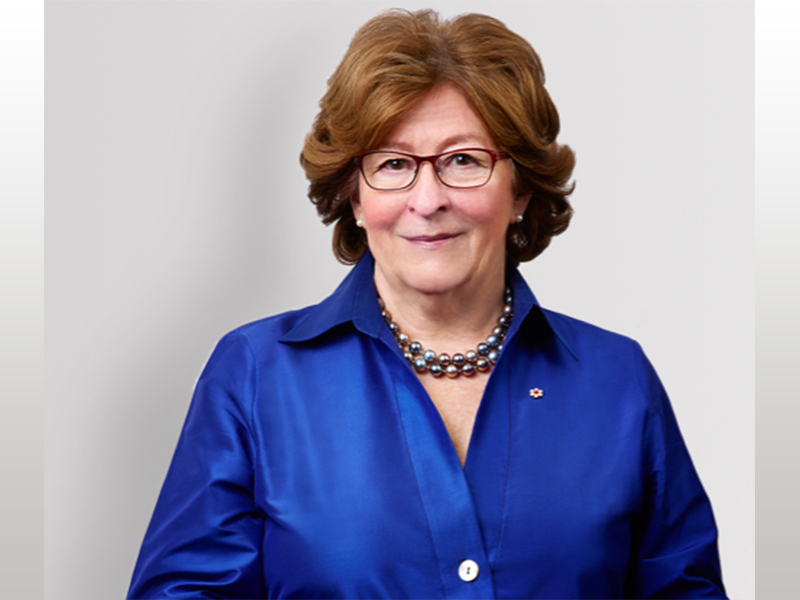
The ins and outs of Duty to Report
Created in 1939, the Duty to Report was created to uphold a standard of conduct amongst CAF members. CAF members are required to report to proper authority any infringement of the “pertinent statutes, regulations, rules, orders, and instructions governing the conduct of any person subject to the Code of Service Discipline.”
However, over the years, the CAF states that many external reviews, stakeholders, and survivors have expressed concerns about the negative consequences from this rule. In particular, it has negatively impacted survivors of sexual misconduct.
The CAF, however, promises that removing Duty to Report will not have a negative impact on “good order and discipline” within the CAF. The CAF recommends certain tools within its institution to ensure a high standard of ethics, including the CAF Ethos: Trusted to Serve, the Code of Values and Ethics, and the Code of Service Discipline.
“We are looking at the repeal of the regulations on the Duty to Report with a holistic perspective, through the entire range of misconduct, not simply one aspect of it (e.g., hateful conduct and the trauma experienced by members of the Defence Team who are impacted by systemic racial injustices). This will involve a complete examination of the issue, which will include engaging a variety of stakeholders,” stated a message from the Chief of the Defence Staff, Gen. Wayne Eyre, and Minister of National Defence to the CAF.

Moving towards a more inclusive environment
The hope is that repealing the Duty to Report will not limit a CAF member’s ability to report their experience but will rather not force members to report something they see. This should allow victims and survivors to take their reporting into their own hands.
“The repeal will help DND/CAF move away from a one-size-fits-all approach to misconduct and we will provide a more focused, responsive, and evidence-informed approach to the reporting of misconduct to support consistency, optimize outcomes, and rebuild trust,” stated the DND.
According to DND, the stress of reporting should not prevent someone from getting the care they need.
“We must foster a culture where survivors, and all those affected by misconduct, feel safe, supported, and able to report wrongs on their own terms. As we repeal the Duty to Report, we will continue to encourage our members to use other available tools to appropriately assess and report misconduct. Ultimately, we must ensure that we provide everyone in our institution with a safe and inclusive workplace. Not only because this is what Canadians rightly expect—our members deserve no less and it’s simply the right thing to do,” Gen. Eyre.
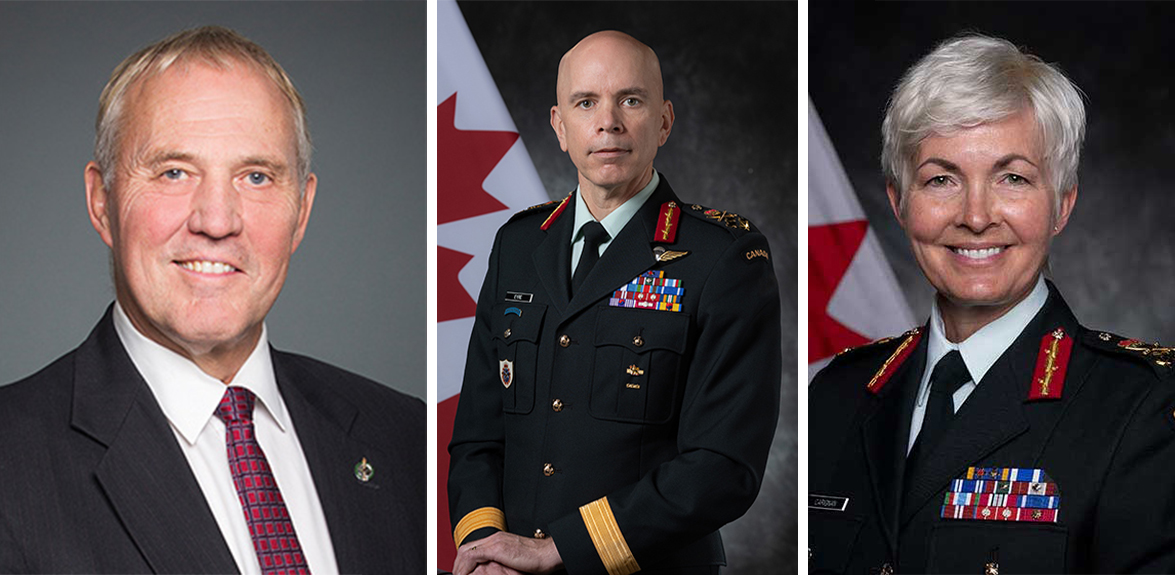
Next Steps
Over the next few months, DND and the CAF will undertake a review of all “relevant regulations, policies, directives” to identify how to move forward with the repeal. Going through a comprehensive review should identify how alternate methods could potentially create any kind of risks or harm.
The process should also include consultations with people within the military community who have lived experiences.
“For incidents of an interpersonal nature, where the risk of trauma is higher, the victims and survivors need to have some measure of control over whether and how the incident is reported, and the actions taken. Repealing the Duty to Report regulations will help us move away from a one-size-fits-all approach to misconduct that has had unintended consequences for affected persons. This change will not limit a member’s ability to report incidents in any way. Our intent is simply to create space for members to exercise discretion and choose the best path forward, with due consideration for the well-being of those impacted,” said LGen. Jennie Carignan, Chief, Professional Conduct and Culture.


